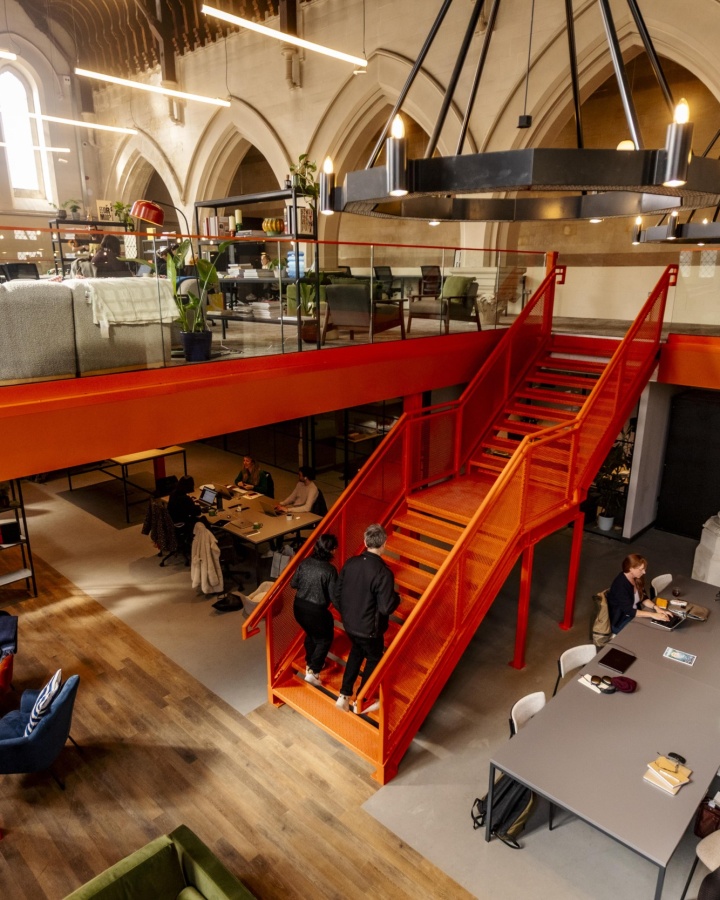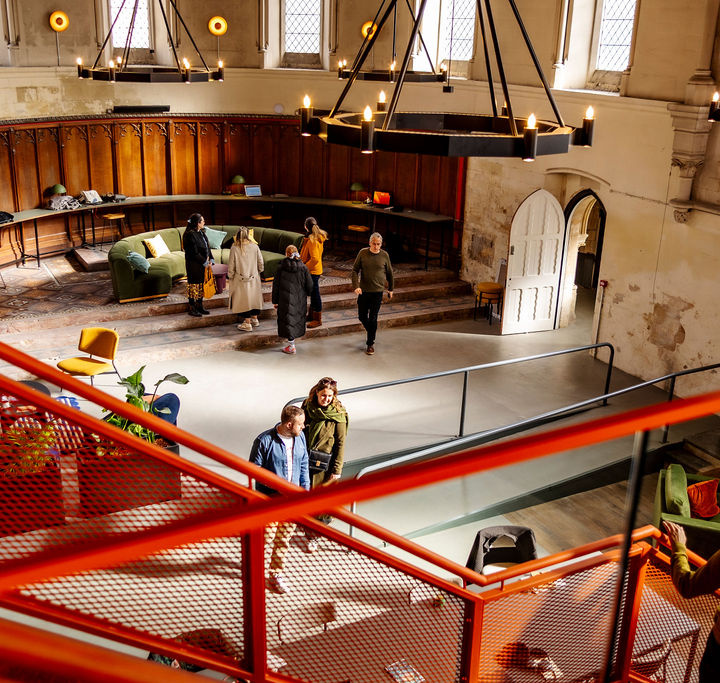

Centre • Bath
Breakfast
Talks
Socials
Run Club
Crafts
Music Events
Summer Party
For Hire
Breakfast
Talks
Socials
Run Club
Crafts
Music Events
Summer Party
For Hire
Breakfast
Talks
Socials
Run Club
Crafts
Music Events
Summer Party
For Hire
Breakfast
Talks
Socials
Run Club
Crafts
Music Events
Summer Party
For Hire
Breakfast
Talks
Socials
Run Club
Crafts
Music Events
Summer Party
For Hire
Breakfast
Talks
Socials
Run Club
Crafts
Music Events
Summer Party
For Hire

There was a time, not so long ago, when working in technology lacked a certain widespread appeal. For one, coding was perceived as deeply complicated. But largely, the professional field was perpetuated with negative stereotypes: socially-awkward and geeky ones at that. Given learning to code was neither made accessible or attractive to a diverse selection of individuals: it’s not surprising rapid advancement in digital innovation has caused the demand for tech skills to outstrip supply. In a study by the Open University in 2019, nine out of ten businesses admitted a shortage in digital skills.
In a landscape where a digital-first approach has given businesses and individuals the upper hand when it comes to connecting with consumers, the demand for skills in software development and engineering has never been higher. Learning to code is proving to be one of the most popular ways to change your career, and gain a skill which is not only futureproof, but challenging and rewarding too!
Why learn to code in 2020?
We know what you’re thinking, aren’t we in the midst of a pandemic-induced recession? But in the COVID-19 crisis, technology proved itself to be the keystone to connection in a new reality – one where physical connection was ruled out overnight. It offered some level of business-as-usual, and even some of the last remaining corporate dinosaurs have accelerated their digital transformation programmes; rudely reminded that to be digitally-enabled is to be resilient and agile in evolving markets. If one thing’s for certain, the demand for skills in technology will only increase over the next few decades. Here are just a few key reasons why you should take the plunge, and consider if the perks of a career in programming could be for you.
It’s affordable
Learning to code is a time commitment, yes, this can’t be denied, but financially? Not so much. The skills gap has triggered an explosion of ‘last-mile’ training providers: online courses and coding bootcamps which offer a whole range of flexible training options. Whether you’ve just graduated with a university degree and feel completely baffled as to how you thought it was going to land you a job (you’re not alone), or an experienced professional in need of a career change, you don’t need to go to back to university to start a career as a developer. Codecademy and Udemy are among the most popular online courses available for beginners, while coding bootcamps courses like _nology, DevelopMe and Makers offer accelerated training programmes from 12-16 weeks with a job guarantee.

It’s accessible
Coding is not the vastly complex discipline it seems from the outside, in fact, anyone with an aptitude for problem-solving will immediately find themselves at home in a code editor. Some have even likened programming to learning a foreign language, while the attraction of designing digital products for people to interact with has inspired many graphic designers and creatives to arm themselves with digital skills, too. Plus, the historically poor representation of diversity in tech teams has spawned a wealth of initiatives and training programmes – like Code First Girls and the Diversitech Fund launched by Bath-based Mayden Academy – designed to help more women, members of the BAME community and career changers to learn to code, and many programmes offer taster sessions to ease you into the idea.
It’s rewarding
At Gather Round, many of our members who work in web development enjoy the freedom which comes from being a freelancer or a technical team member of a small business and experience high demand for their sought after skills. From multinational organisations to local stores: businesses of all shapes and sizes need websites, mobile apps and programs to offer their products, services and experiences online. As a developer, you can support them in all their needs and demands. Whether you’re working as part of a SCRUM team or as a solo freelancer, successfully deploying your projects offers great job satisfaction, and the remuneration to match! Glassdoor reports entry-level Junior Developer jobs offer average salaries of £26K, while Lead Software Engineers can expect salaries in the range of £55K and up. In it for the freedom and flexibility? Experienced freelance developers regularly charge day rates between £250 – £500.
–
Think learning to code could open the door to a new, exciting and challenging career? While once only accessible to those with Computer Science degrees, retraining in technology in 2020 has never been easier: _nology, DevelopMe and Mayden Academy are just a few accelerated tech training programmes on offer in Bristol and Bath – check them out!

With a thriving and active community of like-minded individuals, we’re more than just a place to work. Discover our private studios and shared spaces in Bristol and Bath

Our unique and varied spaces in Bristol and Bath cater for keynotes, networking, workshops, rehearsals and much more.
Find out more
Your specialist delivery avian is now in transit. We’ll be in touch when he reaches us.